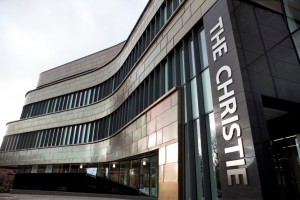Clinical oncology
Curriculum - Clinical oncology training (2015)
Curriculum - Clinical oncology training (2021)
JRCPTB Specialty Overview and Recruitment - http://www.st3recruitment.org.uk/specialties/clinical-oncology
Training Programme Director (North Western)
Dr Ruth Conroy
Email: the-christie.clinicaloncologytraining@nhs.net
Christie Hospital NHS Foundation Trust, 550 Wilmslow Road, Manchester, M20 4BX
Training Programme Director (Mersey)
Dr Jill Bishop
Email: jill.bishop1@nhs.net
Clatterbridge Cancer Centre NHS Foundation Trust, Lower Lane, Fazakerley, Liverpool, L9 7AL
North Western

Introduction
The aim of the North West Training Programme for Clinical Oncology is to impart broad-based scientific and clinical knowledge alongside comprehensive practical experience in all aspects of the non-surgical management of cancer within a pre-planned and carefully monitored training programme leading to the award of the Certificate of Completion of Training (CCT).
Overview of the Training Programme
The Clinical Oncology specialty training programme is a 5-year training programme based at The Rosemere Cancer Centre, Royal Preston Hospital and The Christie NHS Foundation Trust. During the period of training the trainee will rotate between the two centres to ensure a broad exposure to all aspects of non-surgical cancer management in the NHS. Both cancer centres provide equal opportunity for educational and research opportunities, with excellent clinical and educational supervision.
The overall specialty training is for 5 years (ST3-ST7). As in the RCR clinical oncology curriculum (updated in 2023), the training is divided into:
i. ST3 (Oncology Common Stem)
ii. ST4-ST7 (Clinical Oncology Specialty Training and Maintenance of Common Capabilities)
Training in the North Western Programme
a. Clinical rotations
The rotations through different tumour subsites are every 4-6 months. During each rotation, one will be attached to one or two subsites depending on the team you are working with. During the first two years of training (ST3-4), one would likely be doing rotations in breast, lower gastrointestinal tumours, urological malignancies, lung malignancies (although not limited to these only). Other tumour subsites include: upper gastrointestinal tumours, lymphoma, head and neck cancers, sarcoma, gynaecological cancers, skin cancers. There will also be opportunity to gain experience in other rarer subsites such as paediatric cancers post-FRCR Part 2 examinations.
b. Examinations
All trainees will attempt the FRCR examinations as per national recommendations. There are structured courses for FRCR Part 1 and FRCR Part 2B organised to aid preparation for the examinations. Informal sessions organised to supplement learning are also arranged during the pre-examination period.
c. Structured educational sessions
Regional combined full-day teaching every 6-8 weeks on different topics throughout the year
d. Research & Audits
All trainees are strongly encouraged to proactively participate in quality improvement projects, research and audits, and translate their findings into presentation at local, regional, national and international meetings/conferences and eventually into a publication in a peer-reviewed journal.
e. Out-of-programme opportunities
Trainees can take time out-of-programme to pursue academic fellowships (such as MD or PhD), clinical fellowships or for other reasons. This will need to be discussed and approved by the training programme director and NHSE and should be beneficial for the overall training for the trainee.
Flexible Training
Less than full time training in Clinical Oncology is supported by the programme. The training structure is identical to that of full-time trainees in terms of content and assessment. LTFT trainees must work a minimum of 5 sessions per week, typically working 60% or 80% WTE with an on call commitment. Length of training is usually pro rata, with the same competency-based decisions as full-time trainees. Avoiding Monday and/or Friday as a non-working day is ideal, at least for some of your training, and this is best negotiated with each clinical team in advance.
Applications should be made 4-6 months prior to starting LTFT. Forms and further details are available here https://www.nwpgmd.nhs.uk/content/less-full-time-training .
Entry Requirements for the Training Programme
MRCP Part 1 and MRCP Part 2 (including PACES) - essential
Oncology experience at foundation or ST level - desirable